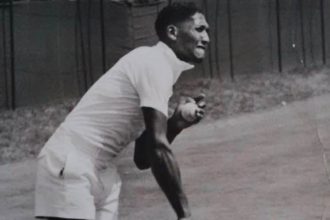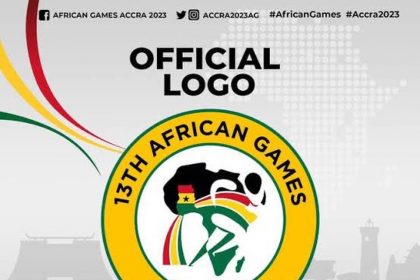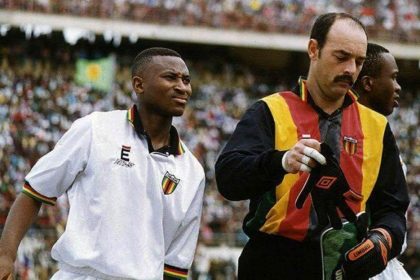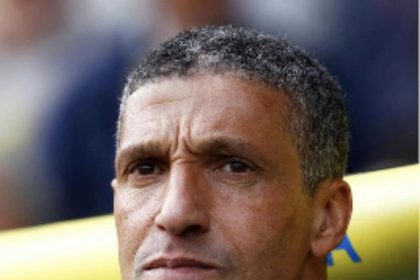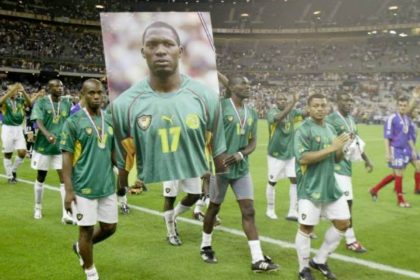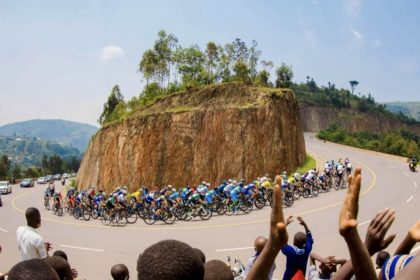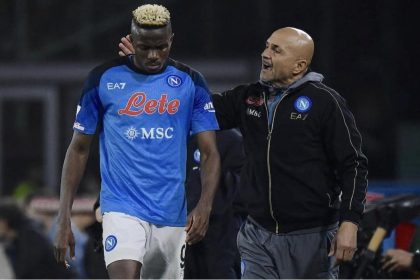The idea of expanding the 2026 FIFA World Cup from a 32-team tournament to 48 was suggested in 2013 by the then-UEFA president Michel Platini, and also in 2016 by FIFA president Gianni Infantino. But it was not until January 10 2017 that the proposal was finally ratified by FIFA assembly when it was decided that the tournament would include 16 groups of three teams and 80 matches in total. The international governing body of football arrived at this decision to lessen the attacks of critics of the expansion who had pointed out that the total 64 matches of the 32-team format was already too much and any additional number of matches would be outrageous. In a bid to appease the critics, FIFA muted that the top two teams of the initially suggested 16-groups would progress to a second round of 16. Following FIFA’s suggestion, history reared its ugly head again, bringing back sad memories of the match of shame between West Germany and Austria at the 1982 FIFA World Cup. In light of this, FIFA vice-president Martyn Ziegler said: “Format for the 2026 World Cup could be revamped amid ‘collusion’ fears.”
One of the leaders of the 2026 World Cup later admitted that FIFA was wrestling with the thorny issue of how to organize the group stage for the first 48-team tournament to ensure that there would be no collusion between the teams in the final group match. Based on the initially agreed plan for the tournament to be jointly hosted by 16 cities in three North American countries of Canada, Mexico and the United States to have 16 groups of three teams, with the top in each advancing to a round of 32, it means one team in each group will not be involved in the final match of the phase. It may therefore suit the teams who are playing to contrive a result that will allow them both to qualify for the next round as happened infamously with the West Germany and Austria game at España 1982 FIFA World Cup.

Every keen follower of football must have noticed that the last group matches of every football tournament are always played simultaneously now. It was eventually settled that the teams will be split into 12 groups of four teams, with the top two of each group and the eight best third-placed teams progressing to a new round of 32, and this was immediately approved by the FIFA Council on March 14 2023. The total number of games played will now increase from 64 to 104, and the number of games played by teams reaching the final four will increase from seven to eight in an apparent sacrifice and change of course (at least to avoid another stage-managed last group match).
Now, what is this historical infamy called “The Disgrace of Gijón” that gripped the whole world this much? Why is a landmark moment in human history of over 40 years still unsettling the football globe up till now? Without doubt, the event that unfolded on June 25 at the El Molinon Stadium, Gijón during the España 1982 FIFA World Cup will remain with us forever obviously.
The 1982 FIFA World Cup, also known as España ’82, was the 12th FIFA World Cup and was played in Spain between 13 June and 11 July 1982. This was the third and last World Cup to feature two rounds of group stages as it was the first expanded 24-team competition of six groups of four, where the top two teams of each group qualified for a second round-robin mini 3-team groups each.
The group two of the first round of this World Cup had the European neighbours West Germany and Austria, complete with the Latin Americans, Chile and an unknown debutant from the continent of Africa (Algeria).
There are a few games that are so memorable that they are known not by their scoreline, but by a nickname.
For instance, the epic African Champions Cup final in 1978 between the former three-time winner and four-straight finalist, the dreaded Hafia Conakry FC and Canon Yaoundé at the Stade Omnisports in Yaoundé in December 1978 was branded ‘The battle of Yaoundé’, a match in which the less fancied Canon Yaoundé stunned the more gorgeous Hafia Conakry 2 – 0 to the title. “The miracle of Damman”, an extraordinary classic at 1989 World Youth Championship in Damman Saudi Arabia when the Nigerian U-20 team came from a 0 – 4 score line barely 25 minutes to the end of the match to equalise against the Soviet Union youth team and eventually edged them out on penalties to secure a memorable semifinal spot.
Modern classics like the ‘the Battle of Nuremberg’, ‘the Battle of the Bridge’, ‘the Battle of Old Trafford’ and ElClásico (which is the seasonal two-legged battles between the two Spanish La Liga giants Barcelona FC and Real Madrid) conjure up images of hard-fought contests with a brutal edge,
while historically grand titles like ‘Match of the Century’, invoke a sense of the epic.
‘The Disgrace of Gijon’ in a direct opposite is a description for a display of anti-football that dazed the watching planet and now ricocheting through human history.
Germany were the 1980 champions of Europe and they qualified for this 1982 World Cup in a grand style without drawing a match – scoring a whopping 33 goals in eight matches, including beating this same Austrians in this 1982 World Cup European qualifying series home and away, so their arrogant arrival at the 1982 Mundial was not without any basis.
“We will dedicate our seventh goal to our wives, and the eighth to our dogs,” Paul Breitner is alleged to have said ahead of their opener against unfancied opponents Algeria.
Another reportedly said he would play the match while chewing on a cigar. Josef Derwall their coach declined to show videos of Algeria to his players because he thought they would laugh at him, and said he would get the next train home if West Germany lost.
Algeria won a game that was clearly a thriller 2-1 at the El Molinón Stadium on June 16 – with goals from Raber Madjer in the 58th minute and the stylish winner from the mercurial Lakdar Belloumi who was the 1981 African Footballer of the Year in the 68th minute after Karl Heinz Rummenigge pulled one back in the 67th minute – in one of the great World Cup shocks in a direct mirror of the biblical epic story of David and Goliath.



The second day of 17th June Austria pipped Chile 0 – 1 with the lone goal from Walter “Schoko” Schachner.
In the second round of matches in this group West Germany rose from the rude shock of their opener against Algeria to overpower the hapless Chileans with a hat trick from Rummenigge and a goal from Uwe Reinders in a one-sided 4 – 1 rout, but Algeria suffered a temporary setback by losing to Austria 0 – 2 with both goals from the boots of Schachner and Hans Krankl.
With Austria now with the maximum point of four (it was two points for a win at that time), West Germany and Algerian standing behind them on two points apiece. The African side warded off any surprise from the whipping boys of the group, Chile in their last match in the group that was played in Estadio Carlos Tartiere, Oviedo, winning 3 – 2 after surrendering a 3 – 0 first half lead with a flamboyant opener from Salah Assad in the 8th minute (Assad scored a brace in the match), in an apparent complacency but the four points were good enough for them to wait the outcome of the Austria versus West Germany last match for a place in the second round of last 12 mini-league which was unfortunately staggered for the following day with FIFA naively not envisaging a stage-managed encounter despite getting a red flag from the obvious “accord match” between Argentina and their Latin American neighbours Peru in the immediate previous edition that aided Argentina in a 6 – 0 Sham that prompted goal difference being replaced by head-to-head scores.
The stage was then set for what is undoubtedly the most controversial international football match in all history when West Germany played Austria in June 25, 1982.
With both sides already knowing that Austria could afford to lose to West Germany but with not more than 0 – 2 exactly for both teams to be through to round of 12 ahead of Algeria.
Coincidence or not, after the early opening goal by Horst Hrubesch in the 10th minute, when he unwittingly bundled a Pierre Littbarski cross into the net, “real football” literally stopped for the remaining 80 minutes of the game, both teams were just passing the ball to each other at midfield without attempting to capture the ball or launch an attack.
Any shred of doubt of a deliberate pact between both teams in this controversial match of Gijón immediately evaporated when the statistics of the full match revealed there were just three shots, none on target and that West Germany made only eight tackles or one every six minutes. Both sides also had an overall pass-completion ratio in excess of 90%, a rate that is rare today for even the best and was unheard of in those days. Austria had a 99% success rate with passes in their own half; West Germany’s was 98%.
At half-time, one of the German players put an arm round an Austrian player’s shoulder and engaged him in a discourse. It’s hard-to-tell what they were then discussing in the video, but it looks meaningful in the context of what we now know today.

The first obvious suspicion was raised in the 52 minutes, when Rummenigge played a long pass back to the halfway line, and again three minutes later when Austria’s Hans Krankl, on the right wing, sent a long 40-yarder with the outside of his right foot back to the sweeper.
The world has seen infamous individual incidences like Diego Maradona’s ‘Hand of god’ against England in 1986 World Cup in Mexico and Luis Suarez’s blatant handball that denied the extraordinary Ghanaian side of 2010 World Cup of an historic semifinal place but an organized staging of a full match by the whole 22-man playing team on the pitch was unprecedented and has never been matched in all history till date.
A strong crowd of 40,000 responded accordingly with whistles of derision ringing around the stadium. “Off came Rumenigge, off came Hrubesch”, On and on went the match until mercifully Bob Valentine, the Scottish referee, blew for time.
“It changed football forever. What ever happened that day embarrassed the organizers of the World Cup so badly they changed the rules to make sure it could never happen. They couldn’t risk putting on another game that was remembered as so notorious”, The Scot, Bob Valentine who was the referee of this match later said 40 years later.

The obviously stunned Algerian FA president, Hadg Sekkal, described the teams’ performance as “a sinister plot” and he immediately logged an appeal, but his appeal was rejected after a three-and-a-half hour meeting, in which the FIFA organizing committee deemed that a result “could not be altered by any outside body, because,…….er, it just couldn’t”.
One German fan in the stadium burned his country’s flag. The match was branded “Nichtangriffspakt von Gijón” or the “Non-agression pact of Gijón,” by the German press.
The Spanish crowd that paid their ways to the stadium with their hard earned Pesetas to watch the match was shouting “Fuera, fuera” (out, out) in utter rage, whilst some fans took to waving banknotes at players, implying the match had been sold to the West Germans.

Even the Austrian manager, Georg Schmidt, seemed embarrassed and agreed it was “a shameful showing.” But the German manager, Derwall was having none of it, calling the Algerians’ talk of an arrangement a “grave, serious insult”.
“We wanted to progress, not play football,” said Jupp Derwall.
German skipper Lothar Matthäus commented: “We have gone through, that is all that matters.”
Since the 1982 show of shame at the El Molinón Stadium in Gijón, football fans all over the world have seen cases similar to the controversial West Germany versus Austria game. Another match that raised concerns about the integrity of the sport at España ’82 was Spain versus Northern Ireland where both teams knew a narrow victory for Northern Ireland would secure their advancement to the knockout stages. After Gerry Armstrong scored the decisive goal in the 47th minute, the game witnessed a significant drop in intensity. Two of the strangest matches ever in football are Thailand versus Indonesia, where an Indonesian defender deliberately scored an own goal so that his team would not have to face the host Vietnam in the semi-finals of the 1998 Tiger Cup and AS Adema versus SO l’Emyrne, where SO l’Emyrne players deliberately scored 149 own goals in protest of referring decision that had gone against them In addition, Barbados versus Grenada (January 27 1994), Coventry City versus Bristol City (May 19 1977) and Peru versus Colombia (October 10 2017) all left sour taste in the mouth.
Obviously, FIFA must have had some of these concerns in mind when it quickly nipped in the bud the frightening prospect of the world seeing another show of shame at the 2026 World Cup. Therefore, the ability of the world governing body of football to iron out the wrinkles in the format before the finals in 2026 should be applauded.








References:
- How match fixing robbed Algeria in 1982. By MEE staff, Published on 29 November 2022
- Most controversial World Cup game? The ‘Disgrace of Gijon’ remembered BY KOBE TONG, PUBLISHED JUN 25, 2022
- World Cup ‘disgrace’ 40 years ago now the reason final group games are played at same time.
- By STUART BALLARD, PUBLISHED: Nov 29, 2022
- World Cup ‘disgrace’ 40 years ago now the reason final group games are played; The Shame of Gijón By Joshua Hunt, June 24, 2014
- Disgrace of Gijon: The match that changed the World Cup forever. June 26, 2018
- The Disgrace of Gijon: West Germany and Austria’s match of shame at 1982 World Cup, Daniel Taylor, Nov 15, 2022
- FIFA World Cup: ‘The Disgrace Of Gijon.’- When Money Was Thrown Inside Stadium In Spain, December 22, 2022, By Aviral Shukla
Edited by Bimbo Ajayi



